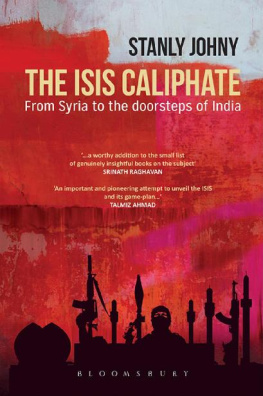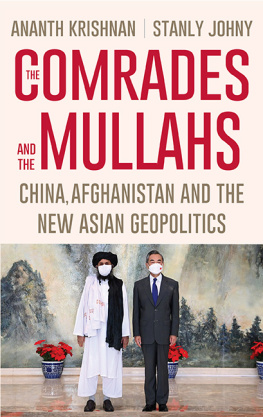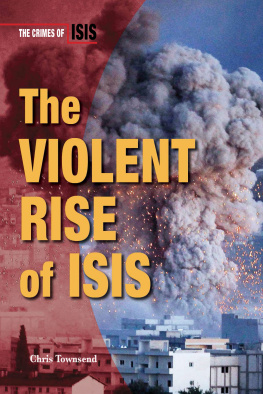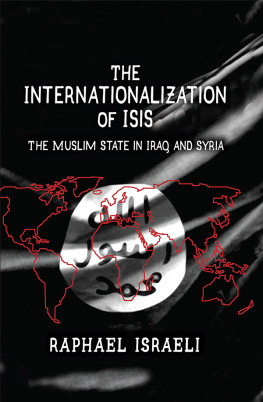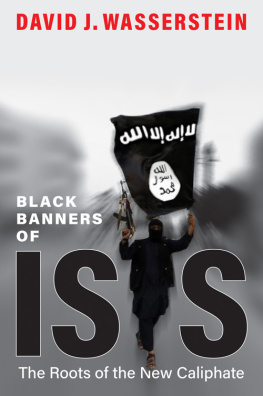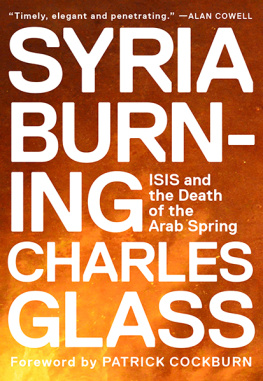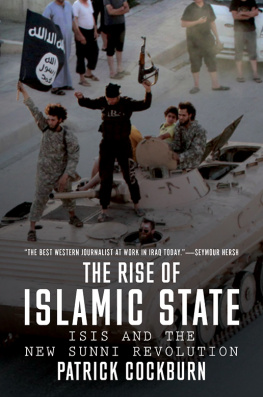First published in India 2018
2018 by Stanly Johny
All rights reserved. No part of this publication may be reproduced or transmitted in any form or by any means, electronic or mechanical, including photocopying, recording, or any information storage or retrieval system, without prior permission in writing from the publishers.
No responsibility for loss caused to any individual or organisation acting on or refraining from action as a result of the material in this publication can be accepted by Bloomsbury or the author.
The content of this book is the sole expression and opinion of its author, and not of the publisher. The publisher in no manner is liable for any opinion or views expressed by the author. While best efforts have been made in preparing this book, the publisher makes no representations or warranties of any kind and assumes no liabilities of any kind with respect to the accuracy or completeness of the content and specifically disclaims any implied warranties of merchantability or fitness of use for a particular purpose.
The publisher believes that the content of this book does not violate any existing copyright/intellectual property of others in any manner whatsoever. However, in case any source has not been duly attributed, the publisher may be notified in writing for necessary action.
BLOOMSBURY and the Diana logo are trademarks of Bloomsbury Publishing Plc
ISBN 978-93-87471-57-3
10 9 8 7 6 5 4 3 2 1
Bloomsbury Publishing India Pvt. Ltd
Second Floor, LSC Building No.4
DDA Complex, Pocket C 6 & 7, Vasant Kunj
New Delhi 110070
www.bloomsbury.com
Created by Manipal Digital Systems
To find out more about our authors and books visit www.bloomsbury.com. Here you will find extracts, author interviews, details of forthcoming events and the option to sign up for our newsletters.
T ill early 2013, not many had known about Abu Bakr al-Baghdadi. His organisation, al-Qaeda in Iraq, was widely believed to have been incapacitated by a coalition of US and Iraqi troops, and Sunni militias from north-western Iraq. The US had already withdrawn most of its troops from Iraq, in line with a plan set by President Barack Obama. But that was just the lull before the storm. In 2013, the Islamic State in Iraq, the new incarnation of al-Qaeda in Iraq, and its Syrian affiliate, Jabhat al-Nusra, captured huge swathes of territories: first, in the civil war-stricken Syria, and then, in Iraq. By mid-2014, the organisation renamed itself as the Islamic State of Iraq and al-Sham, or Greater Syria (ISIS), and captured territories across the Iraqi-Syrian border as much as Great Britains, including Mosul, the second largest city in Iraq. The group has also declared an Islamic Caliphate, and Baghdadi proclaimed himself as the Caliph and demanded the loyalty of the worlds Muslims.
This rapid rise of ISIS left many bemused. Even al-Qaeda took years to establish an international brand among the jihadists. It largely operated from its hideouts in deserts or in forest caves, hit urban and military centres and retreated. ISIS, on the other side, did not only establish a proto-state, effectively erasing the border between Iraq and Syria, but also turned that state into a jihadist haven, attracting youth from around the world into its Caliphate to join jihad . This marked a new phase in global jihadism. ISIS became an organisation that controls territories, resists and defeats conventional armies (Iraqi and Syrian, for instance), advertises its brutalities through high-quality video productions, builds an online ecosystem to reach out to the worlds Muslims, launches suicide attacks in faraway locations and recruits youngsters in tens of thousands from around the world. This was unprecedented in the history of the modern world.
How did it do it? What made ISIS emerge as the most potent terror machinery of our time in a matter of few years? What makes it so special among jihadists that it would attract many thousands more fighters than al-Qaeda ever did? Like many other students of the Middle Eastern history and geopolitics, I was also perplexed by these questions. It was from this surprise and confusion, that this book was born. There are conflicting accounts about ISIS. There are plenty of conspiracy theories as well. Some try to paint the whole Islamic faith with the ISIS brush. Some others say ISIS does not doesnt have anything to do with Islam. Another group says ISIS is a Jewish-imperialist conspiracy. This book keeps aside the conspiracy theories, stops short of stepping into generalisations and has made its study based on the facts available.
Still I faced a methodological problem. One popular method of analysing jihadist groups is to look into the context that led to their rise. For example, we have heard about how the US abetted the rise of jihadist groups in Afghanistan in the 1980s as part of its Cold War foreign policy. It aligned with Saudi Arabia and Pakistan to sponsor jihad against the Soviet Union, which, after the withdrawal of the Soviets, transformed into a deadly militancy and led to the Taliban rule which supported al-Qaeda. The same argument can be raised in the context of ISIS as well. There was no al-Qaeda in Iraq, ISISs predecessor, before the Iraq war. The Iraq war that destroyed the Iraqi state of Saddam Hussein created a vacuum which there was no competent power to fill in. The Jihadists exploited this vacuum.
But when it comes to Europe or countries like India where there is theres no external military intervention, the objective conditions change. Europe was badly affected by the rise of ISIS. Thousands of Europeans have travelled to Syria to join ISIS. Some of them came back to orchestrate terrorist attacks in their home states. The last three years were particularly bloody for Europe which saw a number of terror attacks, in Paris, Nice, Berlin, Brussels and London. The contextualist argument in the case of Europe is that structural discrimination against Muslims in the continent is turning its youth into radicalism. Interviews with some of the radicalised youth underscore this argument. They say they cannot live like true Muslims in Europe. The families that left India to join ISIS also share the same view. They told their relatives in Kerala, the southern Indian state, that it was impossible to practise Islam in the land of infidels and urged them to follow suit.
Both these theories of war and discrimination will struggle to explain the radicalisation of some youth in Bangladesh, which is a Muslim majority country that has not seen any external military intervention since its independence in 1971. There were a number of ISIS-inspired attacks in Bangladesh in recent years, which the group has claimed responsibility for. So what drives radicalisation in Bangladesh?
The objective conditions are valid and vital but an equally important approach is to understand the subjective role the jihadists are playing. There are places where the conditions favour their rise, and there are places where they build influence through their ideology and praxis. In the case of ISIS, the study should start with the groups ideology. Does it have anything to do with Islam? Are there any parallels for ISIS in the vast and diverse Islamic history? How does ISIS continue to inspire Muslim youth from different parts of the world - from Orlando, in the US to Kasaragod, in India - , to join its ideological fold despite the violence and atrocities it commits and its Caliphate coming under heavy attacks? And what do they want and what is their strategy to attain those objectives?


